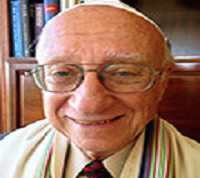God is kind and likes kindness in all things -Prophet Muhammad ( Riyadh us-Saleheen, Volume 1:633)
All great civilizations have been built on the edifice of certain fundamental human values, namely honesty, piety, and justice. These values are the candles that have kept the flame of human civilization glowing. Any attempt to extinguish these burning candles will only hasten the extinction of our civilization.
Islam’s human values revolve around four principles:
- a) Faith should be true and sincere,
b)Individuals be prepared to show it in deeds of charity to our fellow-men,
c) individuals must be good citizens, supporting social organizations, and
d) The individual soul must be firm and unshaken in all circumstances.
This is the standard which provides the nucleus around which the whole moral conduct should revolve. Before laying down any moral injunctions, Islam seeks to firmly implant in man’s heart the conviction that his dealings are with God, who sees him at all times and in all places; that he may hide himself form the whole world, but not from Him; that he may deceive everyone but cannot deceive God; that he can flee from the clutches of anyone else, but not from God’s.
Unlike the commonly held belief that man is evil by nature, Islam holds that man is born with a morally good nature that responds to faith and ethical values. Over time, it may get corrupted due to temptations and man’s inability to exercise control over his desires. According to Islam, there is universal equality among mankind, with the single exception of moral goodness and strength of character or taqwa.
The Qur’an mentions God consciousness as the highest quality of a Muslim:
“{The most honorable among you in the sight of God is the one who is most God-conscious. “(49:13: translation 1)
Humility, modesty, control of passions and desires, truthfulness, integrity, patience, steadfastness, and fulfilling one’s promises are moral values that are emphasized again and again in the Qur’an:
“And God loves those who are firm and steadfast.” (Q3:146)
“And vie with one another to attain to your Sustainer’s forgiveness and to a Paradise as vast as the heavens and the earth, which awaits the God-conscious, who spend for charity in time of plenty and in times of hardship, and restrain their anger, and pardon their fellow men, for God loves those who do good. “(Q3:133-134)
For Islamic civilization, morality is the edifice. It is this fundamental value that distinguishes it from any other civilization in history. The argument that other civilizations, too, have a moral core is countered by the fact that Islam is a way of life — ad-Deen — and not simply a religion.
Islam encourages “downward” comparisons with regard to possessions, but “upward” comparisons with regard to values. In other words, Muslims are taught to compare themselves to those who are less fortunate in terms of material possessions, but to look up to and try to emulate those who live virtuous lives. Great importance, then, is placed on a person’s principles and faith. This minimizes a sense of inferiority that Muslims might otherwise feel to those who are rich or better off than they are. Feelings of equality with others and a sense of fairness can help to combat feelings of low self-esteem, thereby enhancing the health of the individual and the community more generally.
Hypocrisy is not just the gap between doing and feeling; it’s the gap between public persona and private character. Hypocrisy is the failure to practice what you preach. Appearing outwardly righteous to others, while actually being full of uncleanness and self-indulgence—that’s the definition of hypocrisy.
The hypocrite is not the Muslim who struggles against sin, fights against temptation, and keeps doing what is right even on his worst feeling days. That’s a hero. The hypocrite is the Muslim who uses the veneer of public virtue to cover the rot of private vice. He’s the man living a double life
The Prophet taught his Companions to treat everyone, regardless of belief and background, with equality, respect and tolerance. A neighbour, he said, has rights over you, and this extended to mean an entire community. Islam directly links the virtue of equality to the virtue of justice, to which many nuṣûṣ, or Texts of Revelation, refer, as in the statement of Allah: “Moreover, whenever you judge between people, you shall judge with justice” (Q 4:58).
Indeed, it is the desire in man to improve and correct himself which tells him that good shall yield good and evil shall result in evil. Hence, he must try and do his utmost to move towards what the principles of morality, goodness and spiritual purification call for, despite temptations that lead him astray.
The motif that binds the symphony of faith into a symbol of hope is love. Where love is, there God is. Love is that flame which when it rises, burns everything, only God remains. The whole individuality is dissolved in the ocean of eternal bliss .Love is the attribute of God. We all share the same spark of the divine. God is every person’s goal. He is the ultimate beloved .To be in love with other than Him is metaphorical love.
True love isn’t about grasping or clinging to everything and everyone. It is about learning to let go. Love liberates. It doesn’t just hold—that’s ego. True love is free from bondage. By realizing God’s love, we develop humility. When we develop humility, we no longer suffer from pride — of wealth, status, knowledge or power.
Forgiveness is at the heart of so many spiritual and ethical traditions. But, it can be one of the most difficult teachings to live up to. Forgiveness requires an extraordinary struggle against the bruised ego. And, the bigger the hurt, the more difficult it is to forgive.
The way in which the Qur’anic philosophy of forgiveness relates to the human being is two-fold:
First, at the heart of Islamic spirituality is this idea that we have a share, no matter how small in comparison to God, of divine attributes by virtue of the life-giving and divinely originating soul (ruh) that is breathed into us by the angels when we are still fetuses in our mother’s wombs. It is, then, our spiritual task to cultivate and grow these beautiful attributes within our soul and character in order to draw closer to the divine. Forgiveness is an opportunity to adorn our souls with Godliness.
Second, there’s a deep sense that the way we treat others is the way that we will be treated by God. In other words, if we wish for God’s gentle treatment towards us then we must be gentle toward others. This teaching is reflected in what is referred to as the foundational Prophetic teaching – meaning that the first saying attributed from the Prophet (hadith) that a teacher of hadith imparts to his or her student – which states: “Show mercy towards those on earth and the One above the heavens will show mercy toward you.”
ALL the major religions place great importance on compassion. Whether it’s the parable of the good Samaritan in Christianity, Judaism’s “13 attributes of compassion” or the Buddha’s statement that “loving kindness and compassion is all of our practice,” empathy with the suffering of others is seen as a special virtue that has the power to change the world. Empathy is a gateway to compassion. Compassion takes it further. It’s feeling what that person is feeling, holding it, accepting it, and taking some kind of action.
Another key Islamic value is compassion . Compassion is about respecting the variety of perspectives in the world, but it has its roots in the interconnectedness of all beings. Being aware of how other people approach their joy and sorrow, the same kind that we personally go through in our own way, allows us to be more empathic and mindful of the things we do and the people with whom we interact.
Our faith in God and human beings is shown in small acts of kindness, brotherhood or sisterhood and familiarity in our day-to-day lives. We don’t have to go out and look for an opportunity. It stands before us all the time, and we need only to do very well the work that we have been given. If we are mothers, we should be great mothers; if we are civil servants, we should serve people with great energy, honesty and courtesy.





